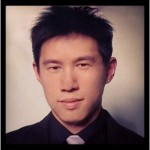By Justin Chiu
Translation : Anton Stzepourginski
Passage au crible n°82

Pixabay
On the 21st of December of 2012, the Samsung company was addressed a warning by the European Commission. This action was taken against an abuse by Samsung of its dominant position judging on the excessive use of its patents. Indeed, patent infringement litigations between Apple and Samsung are still ongoing in Japan, South Korea and in several Western countries. As an example, in August 2012, the South Korean Samsung Group was ordered to pay a record $1-billion fine to Apple.
In this worldwide range of patent battles between the two electronic giants, the European Commission has become the first supranational body trying to ease the tensions. Yet, the question remains as to why smartphone manufacturers don’t mind using their competitors’ patents while they know they could face legal proceedings.
> Historical background
> Theoretical framework
> Analysis
> References
Historical background
In 1983, the first mobile phone was put on the U.S market. Since the Motorola DynaTAC 8000, the development of the mobile phone market symbolizes alone technical progress. However, the introduction of the GSM standard (Global System for Mobile communication, also called 2G for “second-generation wireless telephone technology“) in the middle of the nineties was the real kick start. Indeed, the 2G allowed data to be transmitted through an analog signal, a much cheaper operation than using the previous analogous mode. At the same time, the telecommunication sector was being financialized, but after its worldwide deregulation, merger and acquisition policies started to be implemented; especially in developing countries, by every incumbent operator in the Triad. All of those are now private companies.
Once again, the telecommunication sector changed in the middle of the two-thousands when the 3G hit the market. With a high-speed network it became possible to use new services such as mobile applications (apps) or audiovisual content. Thus, this gave birth to a new economic scheme represented by three components: mobile telephony, electronics, and software. Nowadays, only smartphone manufacturers have the required technical resources to connect those three components. Meanwhile, benefits of the former incumbent operators were declining.
Today, the smartphone market constitutes a global booming sector. With 153.9 million units sold in the second quarter of 2012, this market increased by 40% compared to the analogous period of the previous year. Samsung and Apple own almost 50% of this market. The former has been on the telecommunication market for decades and now holds a large number of key patents on 3G. As to the latter, it greatly influences its competitors with patents on control interface and design. Smartphone-related manufacturing techniques are frequently exchanged between competitors, if not copied. Yet, as trade war is raging on, they have to find new adapted means in order to increase their sales. As a last resort, legal proceedings can be used to reduce competitors’ sales. Since the first trial opposing Nokia and Apple in October 2009, patent-related cases between smartphone manufacturers keep on making headlines.
Theoretical framework
1. A telecommunication sector with no order. Today, there is no form of global governance in the field of telecommunication. In fact, as they are becoming more and more transnational, the number of trials between smartphone and tablet manufacturers keeps increasing. The international telecommunication rules set by the ITU (International Telecommunication Union) are now obsolete. As a matter of fact, the treaty was reformed for the first time at the World Conference on International Telecommunications in 2012. In 1997, the WTO concluded a General Agreement on Telecommunications introducing deregulation in this sector. However, its provisions are hardly implemented on this market once owned by nation-states. Because of this lack of international authority, rules are only implemented on a national basis. As to the courts precedents, they are piecemeal.
2. A transnational spread of technical data. Over the past three decades, operators got their supplies from a globalized market. It helped unifying telecommunication norms and standards at a global level. This process allows interoperability in mobile telephony, a matter of critical importance for both companies and individuals. Smartphone manufacturers are in the heart of innovative industries and their goal is to sell their goods all over the world. Yet, their smartphones need continuous improvements considering the speed of technical progress and the free-access to data. Therefore, patent infringements are strongly recommended, if not compulsory.
Engineering technology gives relevant information on techniques, and according to Marcel Mauss it constitutes an important part of sociology. In other words, the smartphone industry has its place within international relations and thus doesn’t have to deal with economic improvements and advancements of knowledge and innovation in these target areas. However, it is essential to point out how fast and intense the changes in the market can be and, as a result, the way they impact on our society. The smartphone is not only a communication device it is above all a status symbol: as an example, Blackberry mobiles were very popular amongst businessmen. However, prices have declined thanks to the competition between manufacturers that’s why all social classes can now afford a smartphone. This is good news for customers who need to be connected at all times in order to share information with the outside world through their social networks.
It is very difficult to enter the smartphone market without a large portfolio of patents and solid legal expertise. Therefore, the main actors of this market are only transnational companies organized in an oligopoly. Quarterly sales results play a major role in the competition between the manufacturers, indeed, poor profits outlook can cause steep decline in companies’ stock market capitalization. This global market is growing fast, and its actors must always penetrate new markets or consolidate their assets if they don’t want to get kicked out of the game. Also, another problem is that the computer electronics life cycle is shortening while investment costs in research and development are increasing. This vicious circle is very difficult to break for companies facing difficulties, whereas, in the meantime, dominant companies strengthen their sales. This is why Samsung was asked by the European Commission to grant license to its essential industry-standard patents. However, in the legal struggle between Samsung and Apple, the former often finds itself in a bad situation because claims don’t deal with internal control related patents.
Out-of-court settlements happen a lot in this field. A surprising example is the settlement found in the case between Apple and HTC in November 2012. They decided to avoid litigation and they agreed on a 10-year reciprocal license agreement for existing and future patents. In fact, HTC has suffered a lot from its trials and is no longer Apple’s enemy. Today, the Taiwanese smartphone manufacturer no longer partners with Google and Microsoft. HTC is Apple’s ally, for now.
As long as Samsung and Apple will keep their dominant market position, this patent war will last. Ironically, the real challenge doesn’t lie in these patents but in the innovative business strategies of those smartphone manufacturers and in the implementation of an international arbitration mechanism.
References
Commission européenne, « Abus de position dominante: la Commission adresse une communication des griefs à Samsung pour utilisation abusive possible de brevets essentiels liés à une norme de téléphonie mobile », Communiqué de presse, 21 déc. 2012, à l’adresse web : http://europa.eu/rapid/press-release_IP-12-1448_fr.htm [28 déc. 2012]
Elias Norbert, La Dynamique de l’Occident, trad., Paris, 1975.
Le Monde, « Samsung condamné à verser plus d’un milliard de dollars à Apple », 25 août 2012, à l’adresse web: http://www.lemonde.fr/technologies/article/2012/08/25/guerre-des-brevets-apple-remporte-une-victoire-ecrasante-contre-samsung_175 0814_651865.html [28 déc. 2012]
Mauss Marcel, Techniques, technologies et civilisation, Paris, PUF, 2012.
Musso Pierre, Les Télécommunications, Paris, La Découverte, 2008. Coll. Repères.
Roseau James N., Sign J. P. (Ed.), Informations Technologies and Global Politics, The Changing Scope of Power and Governance, Albany, State University of New York Press, 2002.
Strange Susan, The Retreat of the State. The Diffusion of Power in the World Economy, Cambridge, Cambridge University Press, 1996.




